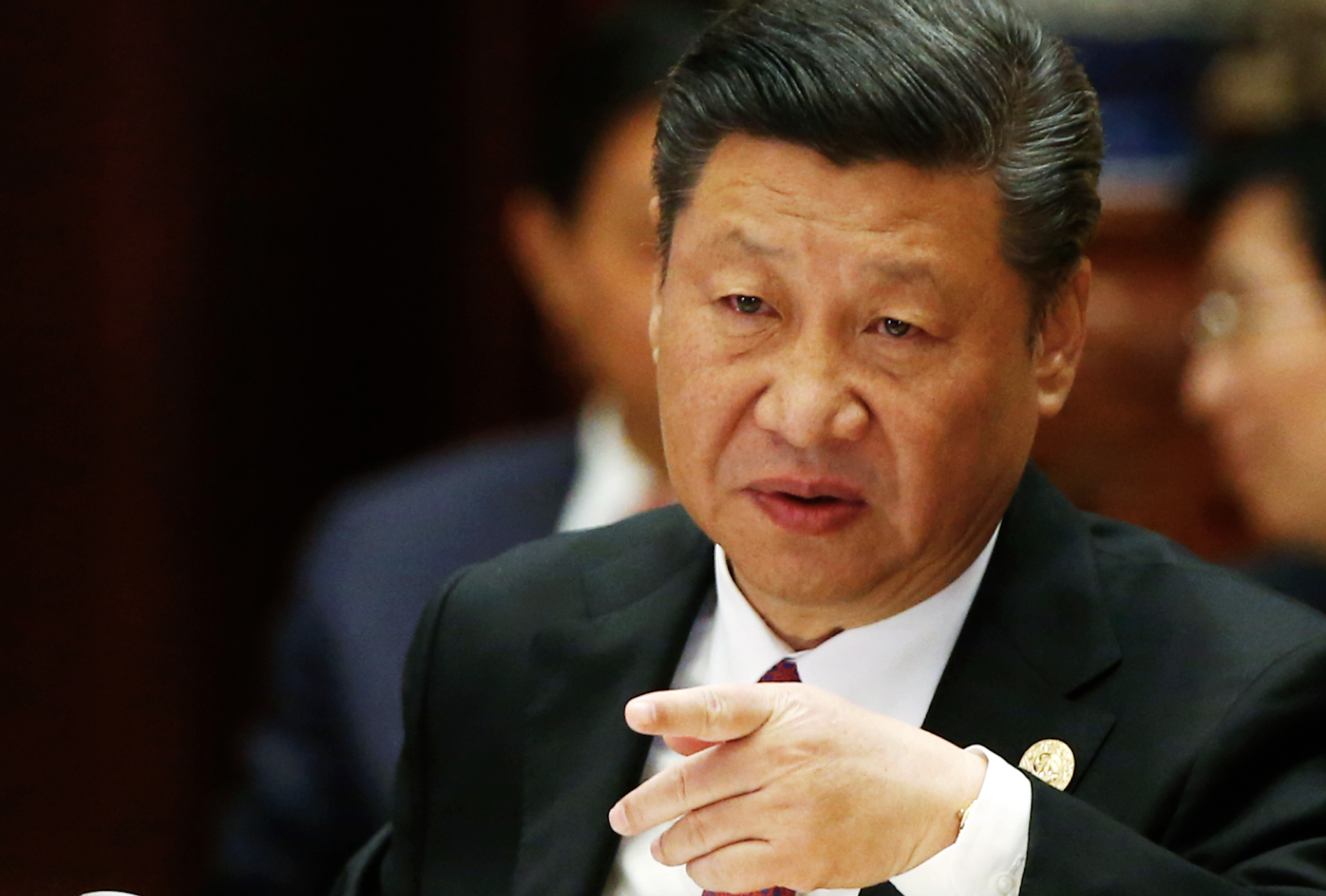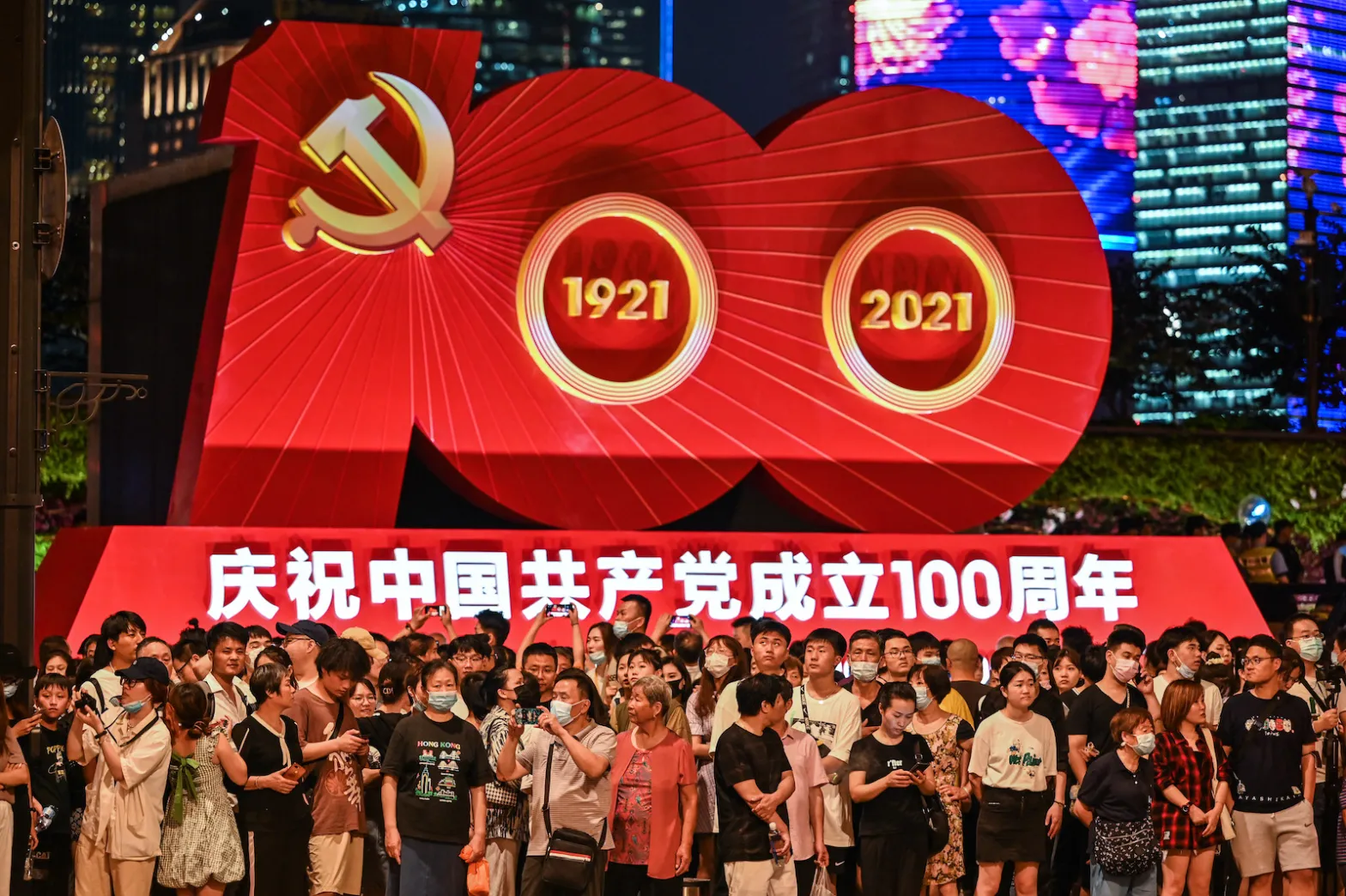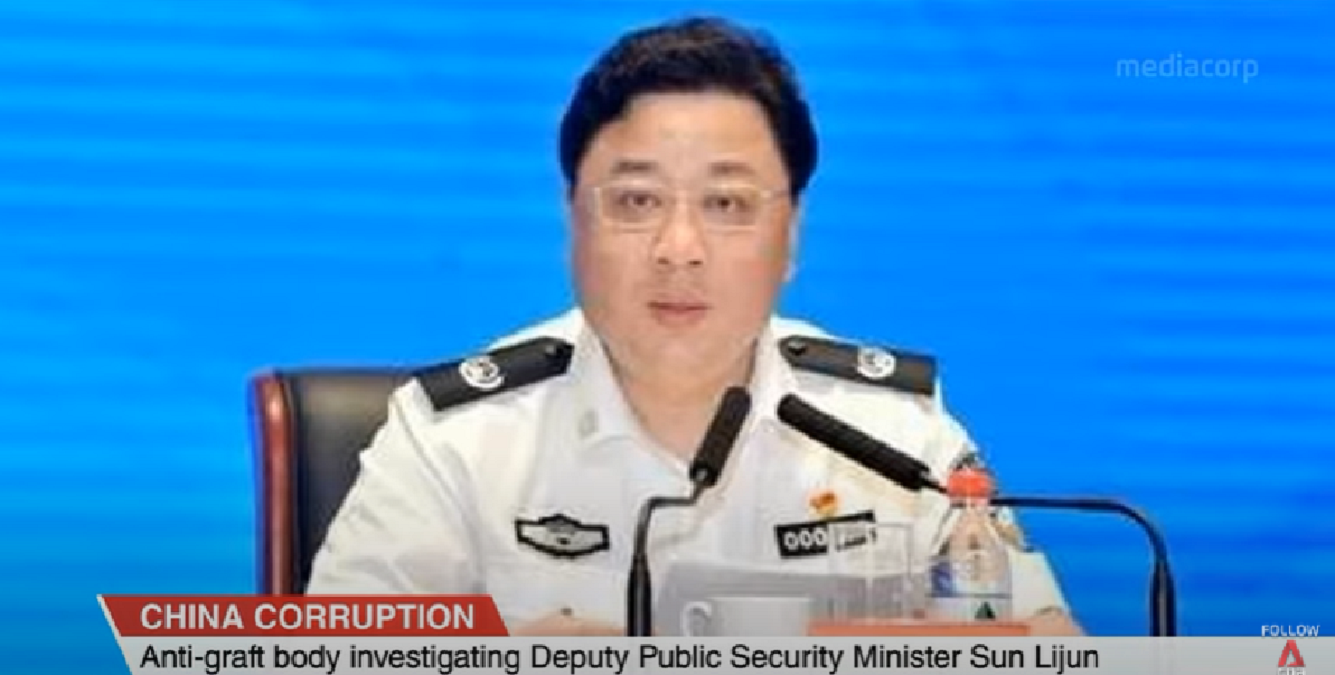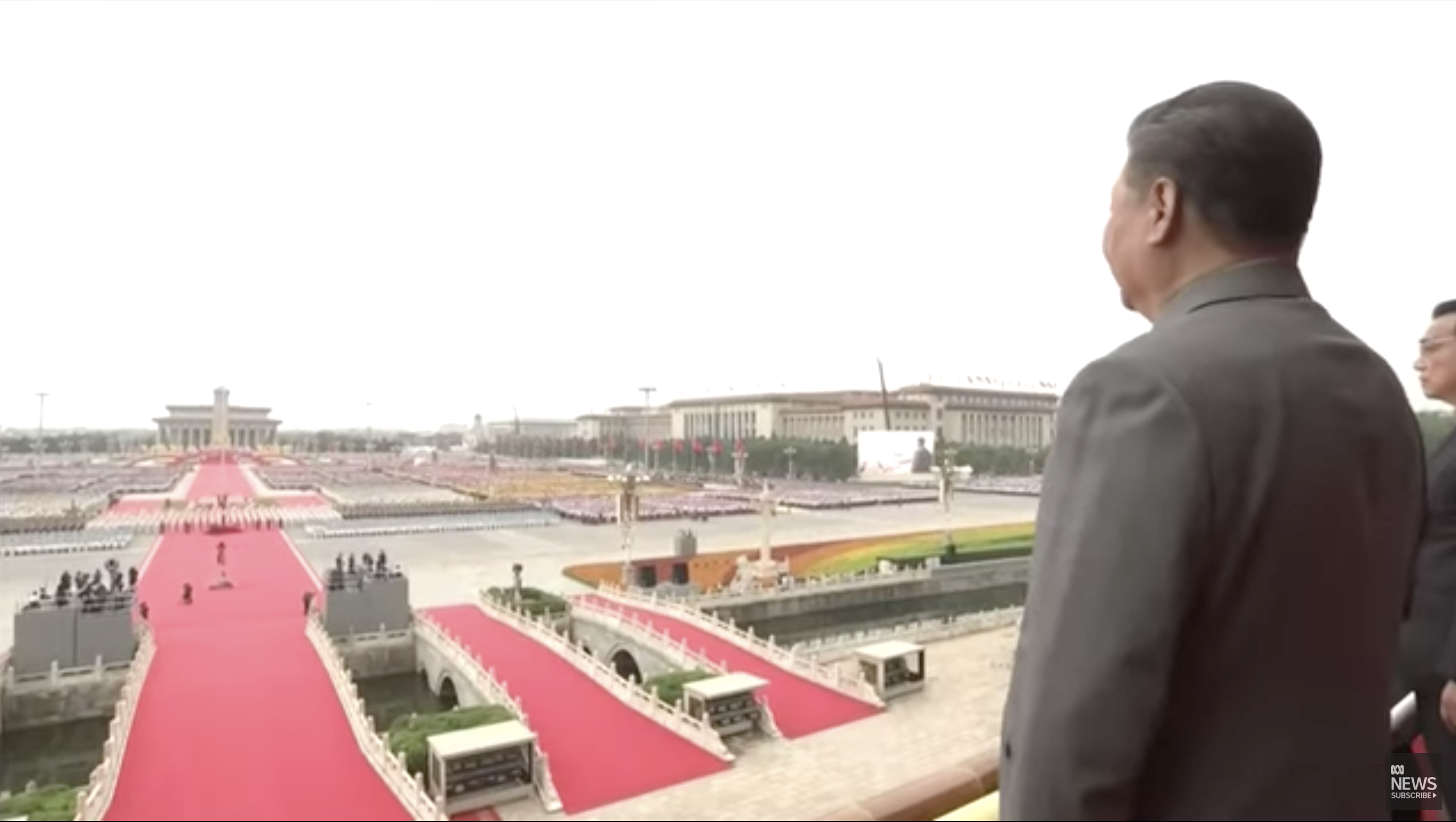The hidden enemies in Xi’s midst

By FRANCESCO SISCI
SETTIMANANEWS
(REPRODUCED BY ASIA TIMES)
EYE ON THE MEDIA
The Sisci article sounded credible and certainly disquieting in many of its assertions, indicative of a Western way of looking at history, politics and culture ("...if China were a democracy"), but we thought it was important enough to reprint it on TGP. However, we delayed publication until we could run the piece by one of our "resident experts" on China, Jeff J. Brown (who is also our associate editor and Beijing correspondent), or Godfree Roberts. As it turned out, by serendipity, the China Writers Group provided the solution in Peter Man's authoritative critique of the article, which we are happy to attach to this post in our Appendix. As usual, Man's analysis of Sisci's assertions is not only dependable but illuminating in the scholarly (and thought-provoking) ways for which he is well known and deservedly appreciated. —PG
Despite its flaws, Asia Times often publishes articles of value, and it has the good sense to maintain, as a regular columnist, Pepe Escobar, which, as Matt Taibbi figures in the Rolling Stone equation, is just about the main if not the only justification for their journalistic existence.
OCTOBER 6, 2021

Chinese President Xi Jinping leads a meeting emphasizing how the country would focus on moderate wealth for all, rather than just a few. Photo: AFP
On the eve of China’s October 1 National Day celebrations, the Chinese Communist Party (CCP) 1 expelled former vice-minister for public security Sun Lijun – not for corruption but serious political crimes almost tantamount to something like an attempted coup.
Specifically, he was accused of “serious violations of discipline” and building cliques and cabals to take over a key government department.
Sun, apprehended about a year ago, is guilty of “overweening political ambitions” and “arbitrarily disagreeing with central policy guidelines,” the mighty party disciplinary committee CCDI wrote in a statement on its official website.
The ex-vice minister had “created and spread political rumors, taken actions against others, wove a web of deceit to obtain political capital and … used unscrupulous means … to form gangs, cliques, and interest groups within the party and build his personal power,” the statement said, thus implying he had gravely violated party centralism and allegiance to the top leadership.
“He formed a cabal to take control over a key department(s), seriously jeopardizing political security and party unity,” the CCDI statement added. Sun is also said to have been “harboring hugely inflated political ambitions” and having “evil political qualities.”
Meanwhile, the Chinese media reported that his former colleague, the ex-minister of justice and ex-head of the Public Security Bureau Fu Zhenghua, is being investigated for “serious violation of discipline and law,” according to a statement from the authorities.
Fu led the investigation into former security czar Zhou Yongkang, jailed in 2015. Zhou was a rival of president Xi Jinping and an ally of ex-Chongqing party chief Bo Xilai, arrested in 2013. Bo’s and Zhou’s arrests helped to consolidate Xi Jinping’s ascendence to power.
The news of Fu and Sun come weeks after their close ally, Peng Bo, a former top Chinese internet censor, was accused by the CCDI of disloyalty to the Party.
Peng, deputy chief of the Cyberspace Administration of China, was expelled from the Party in August. Peng and Fu crossed paths when the latter headed the Central 601 office, which in 1999 was in charge of the crackdown against the Falun Gong, ordered by ex-party chief Jiang Zemin. Peng was his deputy.
Fu is the fourth former deputy public security minister to be detained by the CCDI in recent years.
In 2016, Li Dongsheng, a former deputy national police chief and ally of ex-security tsar Zhou, was jailed for 15 years on corruption charges. Last year, the former head of the international policing agency Interpol, Meng Hongwei, was sentenced to 13 and a half years in jail for corruption.
The plot against Xi
The thinly veiled accusation is of plotting against Xi. But these officers are relatively junior to be scheming against the almost almighty party leader. They must have had the support of some superiors. In the present party structure, they can likely be retired former leaders.
Xi is in an unprecedented and almost impossible position. Mao didn’t have any other senior leader lurking behind his back because he had won power through a war against his rival, nationalist generalissimo Chiang Kai-shek.
Deng promptly eliminated his opponents, the “Gang of Four”, putting them on public trial and thus warning anybody else against trying anything funny.
Besides, none of his adversaries had his seniority and clout in handling party businesses. When Jiang Zemin effectively came to power, after Deng’s demise, he had to deal with the mighty shadow of his rival Qiao Shi over his shoulder.
Still, the Falun Gong protest was blamed on Qiao; he was sidelined, and allegedly soon after, he suffered from some kind of breakdown that impaired his faculties. All in all, Mr. Qiao’s power disappeared. Hu Jintao had to live under Jiang’s cloud.
Xi has been trying to cut off Jiang and all previous leaders, but there are simply too many. There are people from Hu’s generation, from Jiang’s generation, and even some rare survivors of Deng’s times. They have privileges, political access, a network of friends and allies, and shield one another.
To isolate them totally would deprive Xi of part of his own legitimacy, derived from being born into this elite. But to keep them around undermines Xi’s power.

Jiang and Hu’s solution was to have former leaders consult for major and minor decisions. But the process was cumbersome, opaque, and led to the massive corruption that was halting the Chinese economy and that Xi tried to address.
Xi’s solution has been to have them live in a bubble, with money but no power, away from the limelight. But there are thousands of them, many relatively healthy and energetic, and in a society where personal bonds are vital, they still command loyalty from their former underlings.
Sure, Xi is trying to cut these bonds, stressing the need to rule the country according to the unsentimental “laws” 法. Still, the switch is not easy in a place where personal connections have always been the backbone of survival in the face of a ruthless state. Neither is it now possible to physically eliminate or incarcerate all past leaders.
The traditional system put all imperial consorts and riotous princes under house arrest; the Turkish sultan would kill all his brothers upon his ascendancy to the throne. The method was cruel but rational. The supreme leader had to make sure nobody with clout would conspire behind his back.
Democratic systems do not remove this institutional risk but minimize it by making the political process transparent. You can openly argue against the present top leader, but you can’t secretly conspire against him; besides, leaders are practically ordinary citizens after retirement.
In that case, Xi should have an objective interest in making the system more transparent and democratic. His enemies could not hide, and the power struggle would be in the open.
Here there is another turn to China’s complex conundrum. If Xi were to try to solve his power issues by democratizing the political system, many in the party would call him a “traitor.” The party structure is actually the big problem here. In many domestic and international issues, the interests of the Party trump those of the country.
For instance, would China benefit from a freely convertible currency and a freer market? Long-term, yes, but this would endanger the Party’s hold on power, as a possible financial crisis would shake the party’s rigid grip.

Doubting the popularity of the Chinese Communist party or its current leader is a fool's errand. (People stand next to a display commemorating the 100th anniversary of the foundation of the Communist Party of China on its eve in Shanghai on June 30, 2021. Photo: AFP / Hector Retamal)
If the country were a democracy, the government would step down in case of financial turmoil, likely because of capital flight with a convertible currency. Another one would be chosen through an election.
Similarly, the interests of Party elders—keeping the bloated and ineffective privileged caste with its fingers in the cake of power—are against Xi who would like a more effective and responsive rule. In theory, comprehensive reform of the party structure would be necessary to have a clear “rule of law.”
But some retired veterans are not actually interested in the state’s long-term interests but in recovering their half-lost dominance. If Xi doesn’t solve the issue, the many contradictions could make the system stall or even explode in time.
This story first appeared on the Settimana News website and is republished with permission. To see the original, please click here.
 Francesco Sisci is an Italian sinologist, author and columnist who lives and works in Beijing. Currently he is a senior researcher at Renmin University of China and contributes to several journals and think tanks on geopolitical issues. In 2016, he was granted the first interview to the Pope on China.
Francesco Sisci is an Italian sinologist, author and columnist who lives and works in Beijing. Currently he is a senior researcher at Renmin University of China and contributes to several journals and think tanks on geopolitical issues. In 2016, he was granted the first interview to the Pope on China.
APPENDIXA critique of Francesco Sisci's column: The hidden enemies in Xi’s midstBy Peter Man I have followed Sisci at Asia Times for close to 15 years. He does seem to have some knowledge of the going-ons in China, but he pretends to know too much. Read him by all means but don't believe everything he says is certified truth. In fact, most of the historical and current events in his article are poorly understood and mangled to fit his narrative. I don't have time to go through all of the inaccuracies, but I can point out a simple but grievous error. Sisci does not understand the numerous existential dangers to the CPC from the first day of its difficult birth. CPC not only survived all of them, it is now thriving with over 80 million members. It is not easy to become a member of the CPC. You can try to join and see what happens. Therefore, for Sisci to suggest somehow the CPC's regular Zhengfeng (sort of rectification of deviations from the party's original goal) has something to do with conspiracies to remove Xi by his personal enemies betrays his ignorance of the CPC's system of governance. The party elected Xi to lead the party and the country not because he was supported by a clique, or because he commanded an army, or because he was popular in the press. He had none of those. The party knew about the corruption among the ranks and they trusted Xi to rectify the party. They also gave him unstinted support. Hu Jintao, for example, trammeled by Jiang and his clique throughout his term, resigned immediately from all posts in the transition of power. Previously, ex-presidents from Deng onwards were supposed to hold on to their military post for two years presumably to ensure stable transition. The election of Xi was not the first time the CPC wanted to have a leader who could rectify the party from corrupt elements. Zhu Rongji was a most daring Premier who had tried, but he couldn't touch Jiang's clique. If you think Evergrande is a big deal, you might have forgotten that, under Zhu, the Guangdong provincial government owned financial company GITIC was allowed to go bankrupt. It's almost tantamount to saying the wealthiest province of China couldn't pay its debt. Zhu dared to investigate the grand smuggler Lai Changxing, who had corrupted people all the way to Beijing. Zhu received bullets in his mail and his investigators were murdered. Before Zhu became premier, expensive electronics were mostly smuggled into China. I know; I was in the business of selling very expensive equipment in China. Customs and duty ranged from 20% to 35%, and it would take a long time to get the import approval. The whole thing was very blatant. A backwater town was almost completely converted to be the smuggler's conduit. It was an open secret that needed no investigation. Zhu put his foot down and the town went back to its original pastoral self. An entire supply chain was severed overnight. After Zhu stepped down, he also resigned from all his posts, and in fact, from politics. The CPC learned their lesson, elected Xi, and gave him all the support he needed. To assume that Xi is somehow a despotic dictator is the laughably inane narrative of the Western lying machine. Xi could not have become what he is today without the full support of the party and the power of the members behind it. Any measly clique or even armed units daring to challenge the CPC will be crushed into bugsplat. Similarly, to say that Deng eliminated the "Gang of Four" is simply wrong. The arrest of the Gang of Four actually came about because of the military. These generals could have become warlords, but because they were CPC members, they decided Deng would be the best person to lead the party and the nation. Deng didn't do any eliminating. He actually did not disappoint his comrades' faith in him. He saved the party by reconciling with Mao's mistakes and the party's mistakes for letting Mao and the Gang of Four cause damage to the party. It was an existential moment for the party as many members went to the extreme and blamed Mao for everything. Deng reconciled the party with Mao and moved forward. Thanks to Deng, here we are. I suspect a lot of the China narratives Sisci expounds come from Taiwan. They sound oddly familiar. There are quite a few quasi news programs from Taiwan that talk about China as if everything in China is still the saga of some court imbroglio or dynastic struggle. To their credit, they do mention in small characters that the contents are personal opinions and the programs are categorized as entertainment. One last piece of evidence demonstrates that Sisci doesn't know much about politics or governments. He casually states as fact that the China system is obscure and problematic allowing for personal intrigues. Similarly, he declares that democracy is transparent and fair, and a Western style election will solve the problems of corruption. What betrays his ignorance is when he says "the Turkish sultan would kill all his brothers upon his ascendancy to the throne. The method was cruel but rational." It was in fact asinine, not rational, and was self-defeating, as cutting one's head off to cure an itch. Sultan Ahmed I stopped and outlawed this practice on ascension, after his father killed nineteen brothers. If it's rational, they'd still be doing it. So read Sisci as tabloid and chuckle when you notice something discordant with fact.
|
Also by Peter Man:
On Failed Revolution
The views expressed herein are solely those of the author and may or may not reflect those of The Greanville Post. However, we do think they are important enough to be transmitted to a wider audience.
Don’t forget to sign up for our FREE bulletin. Get The Greanville Post in your mailbox every few days.
[newsletter_form]
YOU ARE FREE TO REPRODUCE THIS ARTICLE PROVIDED YOU GIVE PROPER CREDIT TO THE GREANVILLE POST
VIA A BACK LIVE LINK.

